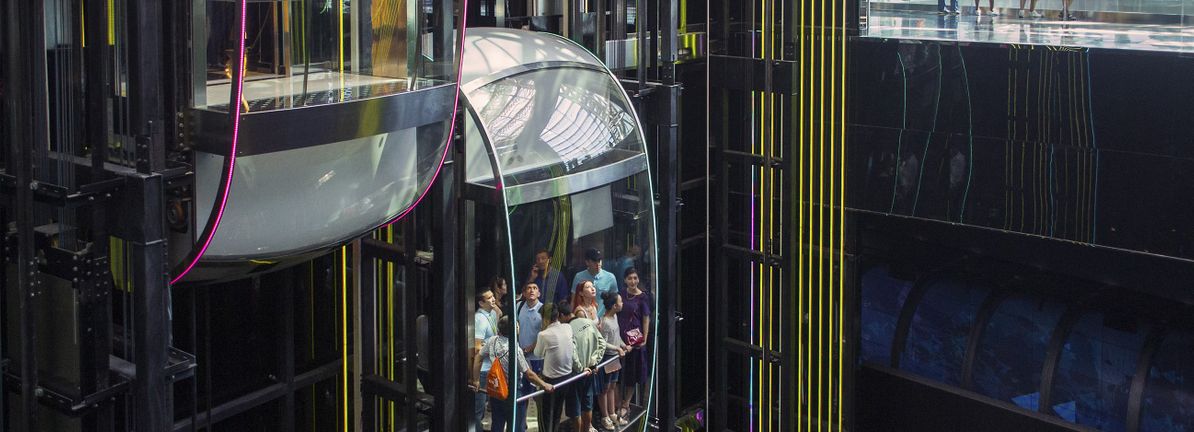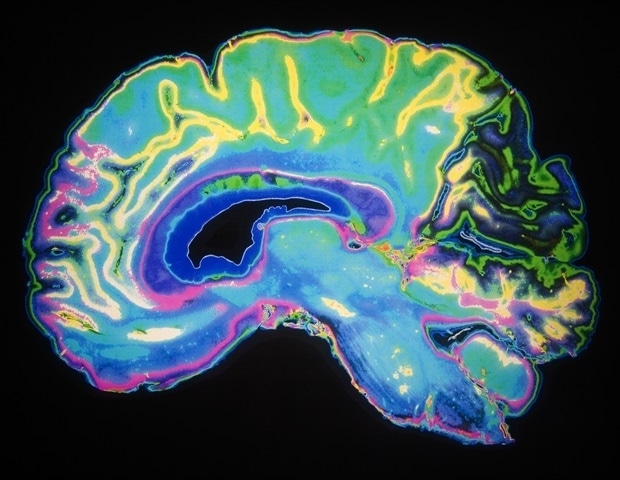Samsung C&T and Samsung Electronics Will Make an Equity Investment of $110 Million Into GRAIL, Subject to Closing Conditions
Samsung C&T Will Drive Commercialization of Galleri in South Korea With Possible Expansion to Japan and Singapore
Samsung Electronics and GRAIL Will Also Explore Potential Strategic and Operational Collaborations
Samsung C&T (SCT), Samsung Electronics (SEC), and GRAIL, Inc. (Nasdaq: GRAL), today announced they have signed a binding Letter of Intent for a strategic collaboration to bring GRAIL’s GalleriⓇ multi-cancer early detection (MCED) test to key Asian markets. SCT and SEC have also agreed to invest $110 million into GRAIL, a healthcare company whose mission is to detect cancer early when it can be cured, at a price of $70.05 per share of common stock.1
“Guided by its commitment to advancing next-generation bio-technologies and improving quality of life, Samsung C&T has continuously invested in innovative companies. The collaboration with GRAIL represents a significant new step—moving beyond investment to a strategic business partnership that provides Samsung with a strong foothold for expanding into the cancer screening field and delivering one of these promising technologies to customers in South Korea and across Asia.” said Jaywoo Kim, Executive Vice President of Life Science Business at Samsung C&T.
Subject to final execution of definitive agreements, GRAIL and SCT will work as exclusive partners to commercialize the Galleri test in South Korea, with a possible extension into other Asian geographies, including Japan and Singapore. SCT will undertake key activities to drive adoption of Galleri . Initially, tests will be performed in GRAIL’s clinical laboratory in Research Triangle Park, North Carolina.
“We look forward to partnering with Samsung to bring multi-cancer early detection to Asia, beginning in South Korea,” said Sir Harpal Kumar, President, International Business & Biopharma, at GRAIL. “Samsung’s significant equity investment strengthens our balance sheet and provides further cash runway as we advance through key milestones to secure reimbursement for Galleri in the U.S. and key international markets.”
In addition, SEC and GRAIL intend to explore potential strategic and operational collaborations such as supporting longitudinal genomic-lifestyle clinical research, and the integration of SEC’s health data platform with GRAIL’s technologies and data.
“Our investment in and strategic cooperation with GRAIL is part of our vision to improve the health of billions of people. A potential collaboration with GRAIL could allow for the integration of our AI, our digital care platform, and device ecosystem with GRAIL’s clinical genetic data and technology, which could allow us to provide a level of personalization for our users to help them better understand their health,” said Hon Pak, Senior Vice President and Head of Digital Health Team, Mobile eXperience Business, at Samsung Electronics.
The terms of the collaborations are set forth in the term sheets between the parties. Definitive agreements will be negotiated in good faith pursuant to the term sheet and are intended to be entered into in early 2026. Commercial operations will begin soon after execution. Within South Korea, and potentially Japan and Singapore, GRAIL will partner with SCT as its sole distributor, subject to certain requirements, and GRAIL’s Galleri test will be the exclusive MCED test distributed by SCT.
The investment is subject to execution of the definitive collaboration agreements between the parties, as well as customary closing conditions and regulatory approvals. The investment is expected to close in early 2026.
Latham & Watkins served as legal advisor and Morgan Stanley & Co. LLC served as financial advisor to GRAIL. Samsung was advised by Covington & Burling, BKL, and E&Y Han Young (Korea).
1 Representing a 10% premium to the 15 day VWAP.
About Samsung C&T Corporation
Samsung C&T Corporation, a dynamic player in industries ranging from construction, trading, fashion and resorts, is actively expanding its portfolio with strategic investments in the fields of biopharmaceutical and life sciences. Since its investment in Samsung Biologics and Samsung Bioepis, Samsung C&T continues to invest in innovative technologies and businesses within the bio and healthcare sectors, with the goal of contributing to improving the quality of human life.
About GRAIL
GRAIL is a healthcare company whose mission is to detect cancer early, when it can be cured. GRAIL is focused on alleviating the global burden of cancer by using the power of next-generation sequencing, population-scale clinical studies, and state-of-the-art machine learning, software, and automation to detect and identify multiple deadly cancer types in earlier stages. GRAIL’s targeted methylation-based platform can support the continuum of care for screening and precision oncology, including multi-cancer early detection in symptomatic patients, risk stratification, minimal residual disease detection, biomarker subtyping, treatment and recurrence monitoring. GRAIL is headquartered in Menlo Park, CA with locations in Washington, D.C., North Carolina, and the United Kingdom.
For more information, visit grail.com.
About Galleri®
The Galleri multi-cancer early detection test is a proactive tool to screen for cancer. With a simple blood draw, Galleri can detect more than 50 types of cancer before symptoms appear — when they can be easier to treat and are potentially curable2. Galleri is the only available MCED test with demonstrated performance in patients screened for cancer2,*. The Galleri test doubles the number of cancers detected when added to standard of care cancer screening, and has the lowest false positive rate of any MCED test1,2,3,4,**. When a cancer signal is found, Galleri provides a cancer signal of origin with high accuracy to help guide an efficient diagnostic work-up4,5,6. The Galleri test requires a prescription from a licensed healthcare provider and should be used in addition to recommended cancer screenings such as mammography, colonoscopy, prostate-specific antigen (PSA) test, or cervical cancer screening. The Galleri test is recommended for adults with an elevated risk for cancer, such as those aged 50 or older.
For more information, visit galleri.com.
* The Galleri test performance metrics were derived from the outcomes of an interventional clinical study of patients presenting for screening without clinical suspicion of cancer, a study population that reflects the intended use population.
** Test performance metrics do not represent results of a head-to-head comparative study. Separate studies have different designs, objectives, and participant populations, which limits the ability to draw conclusions about comparative performance.
Important Galleri Safety Information
The Galleri test is recommended for use in adults with an elevated risk for cancer, such as those age 50 or older. The test does not detect all cancers and should be used in addition to routine cancer screening tests recommended by a healthcare provider. The Galleri test is intended to detect cancer signals and predict where in the body the cancer signal is located. Use of the test is not recommended in individuals who are pregnant, 21 years old or younger, or undergoing active cancer treatment.
Results should be interpreted by a healthcare provider in the context of medical history, clinical signs, and symptoms. A test result of No Cancer Signal Detected does not rule out cancer. A test result of Cancer Signal Detected requires confirmatory diagnostic evaluation by medically established procedures (e.g., imaging) to confirm cancer.
If cancer is not confirmed with further testing, it could mean that cancer is not present or testing was insufficient to detect cancer, including due to the cancer being located in a different part of the body. False positive (a cancer signal detected when cancer is not present) and false negative (a cancer signal not detected when cancer is present) test results do occur. Rx only.
Laboratory/Test Information
The GRAIL clinical laboratory is certified under the Clinical Laboratory Improvement Amendments of 1988
(CLIA) and accredited by the College of American Pathologists. The Galleri test was developed — and its performance characteristics were determined — by GRAIL. The Galleri test has not been cleared or approved by the Food and Drug Administration. The GRAIL clinical laboratory is regulated under CLIA to perform high-complexity testing. The Galleri test is intended for clinical purposes.
GRAIL Forward Looking Statements
This press release contains forward-looking statements. In some cases, you can identify these statements by forward-looking words such as “aim,” “anticipate,” “believe,” “continue,” “could,” “estimate,” “expect,” “intend,” “may,” “might,” “plan,” “potential,” “predict,” “should,” “would,” or “will,” the negative of these terms, and other comparable terminology. These forward-looking statements, which are subject to risks, uncertainties, and assumptions about us, may include expectations and projections of our ability to negotiate definitive agreements, the closing of the investment, the terms under which we will conduct our collaborations, future potential additional collaborations, our ability to commercialize Galleri in other geographies, success of our collaboration with counterparties, sufficiency of cash on hand to finance our business and anticipated trends in our business.
These statements are only predictions based on our current expectations and projections about future events and trends. There are important factors that could cause our actual results, level of activity, performance, or achievements to differ materially and adversely from those expressed or implied by the forward-looking statements, including those factors and numerous associated risks discussed under the sections entitled “Risk Factors” in our Annual Report on Form 10-K for the period ended December 31, 2024 and in our Quarterly Report on [Form 10-Q for the period ended June 30, 2025] (the “Form 10-Q”). Moreover, we operate in a dynamic and rapidly changing environment. New risks emerge from time to time. It is not possible for our management to predict all risks, nor can we assess the impact of all factors on our business or the extent to which any factor, or combination of factors, may cause actual results, level of activity, performance, or achievements to differ materially and adversely from those contained in any forward-looking statements we may make.
Forward-looking statements relate to the future and, accordingly, are subject to inherent uncertainties, risks, and changes in circumstances that are difficult to predict and many of which are outside of our control. Although we believe the expectations and projections expressed or implied by the forward-looking statements are reasonable, we cannot guarantee future results, level of activity, performance, or achievements. Our actual results, financial condition and success in our business strategies and operations may differ materially from those indicated in the forward-looking statements. Except to the extent required by law, we undertake no obligation to update any of these forward-looking statements after the date of this press release to conform our prior statements to actual results or revised expectations or to reflect new information or the occurrence of unanticipated events.
References:
1. Nabavizadeh N, et al. Safety and Performance of a Multi-Cancer Early Detection (MCED) Test in an Intended-Use Population: Initial Results from the Registrational PATHFINDER 2 Study. Proffered Presentation Presented at: European Society for Medical Oncology (ESMO) Annual Meeting; October 17-21, 2025; Berlin, Germany.
2. Klein EA, Richards D, Cohn A, et al. Clinical validation of a targeted methylation-based multi-cancer early detection test using an independent validation set. Ann Oncol. 2021 Sep;32(9):1167-77. doi: 10.1016/j.annonc.2021.05.806
3. GRAIL, Inc. False positive rate. [Data on file: GR-2025-0256]
4. Schrag D, Beer TM, McDonnell CH, et al. Blood-based tests for multi-cancer early detection (PATHFINDER): a prospective cohort study. Lancet. 2023;402:1251-1260. doi: 10.1016/S0140-6736(23)01700-2
5. GRAIL, Inc. Enhanced Cancer Signal Origin prediction. [Data on file: VV-TMF-59592]
6. Hackshaw A, et al. Cancer Cell. 2022;40(2):109-13.









